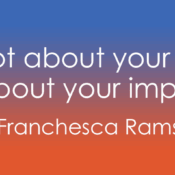
The Hidden Curriculum: Leadership Lessons from a Youth Soccer Field
The loudest lessons I’ve learned about leadership didn't come from a business school—they came from a youth soccer field.
As the coach of my twin 5-year-old boys’ team, I've seen firsthand how the principles of effective leadership, team-building, and communication are shaped by these pivotal moments engrained in our daily reality.
In the corporate world, we talk a lot about management styles, but what we often miss is the "hidden curriculum" that’s at play—the subtle lessons that employees absorb just by being a part of the team.
My experience as a coach has revealed some profound truths about how we treat people, both on and off the field.
The Auditory Assault
"Get them!"
Just this recent Saturday, I watched a coach scream those words at his kindergarten soccer team.
While my boys and I are having a blast, I was not prepared for the relentless shouting and jeering from the sidelines.
Growing up playing sports, I never fully registered that "auditory assault" because I couldn't hear it; I never wore my hearing aids to protect them from sweat damage. This unique perspective has forced me to consider a critical question: what are we truly teaching kids in these moments? And more importantly, is this process of incidental learning—the lessons absorbed unintentionally—equal for everyone?
Incidental learning is an often-overlooked but powerful form of learning that occurs as a byproduct of other activities. Think of it as a subconscious sponge, soaking up information while you're focused on something else entirely. It's the hidden curriculum we all experience every day—from the social cues we learn at work to the unspoken rules of a family dinner. In the context of the soccer field, it’s an auditory landscape of a coach's voice, team huddles, and the game's energy. These are the sounds that typically shape a young person's understanding of the world, teaching empathy, resilience, and the true meaning of teamwork.
The Sideline Classroom
The soccer field is a rich environment for incidental learning, immersing children in a dynamic setting where they subconsciously absorb valuable lessons beyond the rules of the game. Kids learn emotional regulation as they navigate the pressure of competition, the sting of a loss, and the joy of a win. They also learn social dynamics by working as a team and supporting their teammates, while simultaneously developing resilience to bounce back from mistakes despite the distracting noise from the sidelines.
However, for those who are Deaf or hard of hearing, this pathway of learning is often inaccessible. I consider myself fortunate that I never had to hear my coaches or other parents scream during the games I played in growing up. That said, I’ve spent a lot of time this week wondering about the visceral impact that the sideline screaming and micromanaging will have on my boys, their teammates, and even their opponents.
The “Inequality of Learning”
Looking back, the incidental learning of team sports was often a world I couldn't fully access. While interpreters were present for hockey, volleyball and football practices and games, they were absent for the locker room banter and bus rides—the very moments where deep connections are forged. My teammates were just teammates; I was a part of the team, but never truly a member of the team.
This experience, which extended to my three years on the high school debate team, often left me feeling isolated. My role as a teammate was reduced to a silent observer in a world of shared conversation.
This fuels my passion to coach at the Stan Mikita Hockey School for the Deaf and Hard of Hearing. As a camper there for eleven years, it was the only place where I had a safe space, free of communication barriers among my team. Now, by stepping onto the ice, I'm not just teaching hockey; I'm providing these kids with the sense of belonging I cherished; contributing a powerful reminder that the most valuable lessons have little to do with the final score.
The Unseen Lessons
We are all perpetual students, constantly learning from the evolving world around us. Moments of incidental learning often subtly shape our values and behaviors more than any direct instruction. As parents, coaches, and mentors, we often focus on teaching specific skills, but the most important lessons are the ones we model. We can tell kids to practice good sportsmanship, but they truly learn what that means by watching us shake an opposing coach's hand after a tough loss. The values we teach aren't just the ones we talk about—they're the ones we live out.
Over-enthusiastic, helicopter parents often create a challenging dynamic on the field. As a coach, my role as coach is to help players grow and think for themselves. While I’m fortunate to have a great team of parents and family members who are cheering their favorite players on, this could be easily undermined if they are providing constant instructions from the sidelines. When this overstep happens, they prevent kids from learning to trust their team and their own instincts. This highlights a critical point: we often don't know the full impact of our actions, especially the subtle lessons we teach through our behavior.
Now that I’m more aware of the distraction and pressure that sideline shouting imposes on the players, I am using the ‘newly discovered’ information to create a better environment for my boys and their teammates. This includes having necessary conversations with my sons to teach them that I don’t agree with the other coach who was yelling at his team.
The Call to Be Curious and Present
To unlock the power of incidental learning, we must be present, curious, and aware. In a fast-paced world, it's easy to miss the small moments and quiet lessons happening all around us.
As a coach and parent, my sons are some of my greatest teachers, reminding me to see the world from a different perspective. Their love for the game is a powerful reminder that we should model a love for life. The lessons from the soccer field extend far beyond the game. They apply to every facet of our lives, especially in the workplace.
As leaders, we must ask ourselves: Are we fostering a culture of trust and independence, or one of dependency? Are we modeling the values we want to see in our teams? And most importantly, are we building an environment where everyone has the opportunity to learn, grow, and truly belong?
At 2axend, we carry these lessons into the workplace every day. Just as the soccer field reveals the power of modeling behavior and creating space for growth, organizations must design environments where Deaf and hard of hearing professionals have equitable access to learn, contribute, and thrive. Our work is rooted in helping leaders recognize these hidden lessons and transform them into intentional practices that build cultures of belonging.
After all, it's not just about the final score in a game or the quarterly earnings report; it's about the people we're impacting along the way. In the end, I hope we choose to teach the best lessons—the ones that promote independence, resilience, and a love for the game. We can do this not just by what we say, but by what we do. Ultimately, it’s just a game, not the World Cup.



